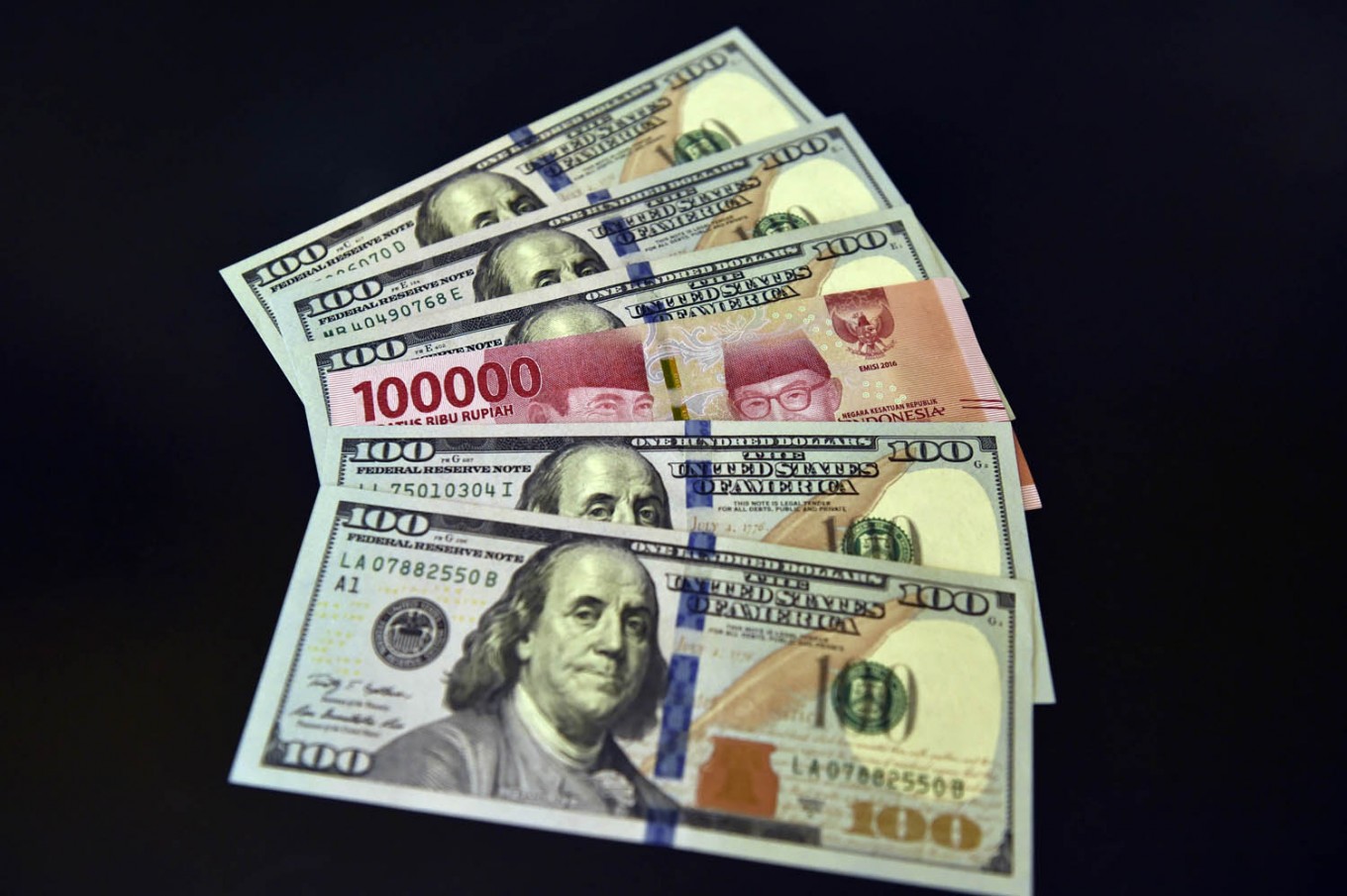Stronger rupiah in 2019 despite global uncertainty, experts say
The rupiah’s appreciation was accompanied by a buildup in foreign exchange reserves, which has been consistently improving since September.
Change Size
 Data from the Jakarta Interbank Spot Dollar Rate show the rupiah traded at 14,465 against the US dollar on Jan. 2. The rupiah continued to strengthen on Wednesday, trading at 14,120 per US dollar. (Antara/Puspa Perwitasari)
Data from the Jakarta Interbank Spot Dollar Rate show the rupiah traded at 14,465 against the US dollar on Jan. 2. The rupiah continued to strengthen on Wednesday, trading at 14,120 per US dollar. (Antara/Puspa Perwitasari)
T
he value of the rupiah against the US dollar rose in the first week of 2019 after depreciating heavily last year, with analysts projecting that the currency may continue to gain ground despite global uncertainty.
Data from the Jakarta Interbank Spot Dollar Rate show the rupiah traded at 14,465 against the US dollar on Jan. 2. The rupiah continued to strengthen on Wednesday, trading at 14,120 per US dollar.
The stronger position of the rupiah at the beginning of 2019 was down to several factors, such as newly published macroeconomic data that was positively received given rising uncertainty in the global economy, said Piter Abdullah Redjalam, a research director at the Center of Reform on Economics Indonesia.
“Improvements in [Indonesia’s] economic indicators amid the slowdown in major economies prompted positive sentiments among foreign investors and encouraged capital inflows to the Indonesian financial market,” Piter told The Jakarta Post on Wednesday.
He said the outlook of major countries such as the United States and China, both of which have been engaging in a tariff war, remained unfavorable.
On Tuesday, Finance Minister Sri Mulyani Indrawati expressed a similar view, in that recent positive developments in the domestic economy meant it was perceived favorably by foreign investors compared to its emerging market peers.
“Indonesia is being treated differently [by foreign investors] as an emerging market with relatively high growth and stable fiscal as well as monetary policy during the financial turmoil in global markets in 2018,” she said, referring to the period when foreign capital flowed out of emerging economies.
According to the Finance Ministry’s preliminary data, revenue in 2018 was Rp 47.6 trillion (US$3.37 billion) above the targeted Rp 1.89 quadrillion in the state budget. The increase was down to a surplus in nontax revenue because of higher than expected oil prices, among other factors.
Revenue collection coupled with a good record in expenditure also helped narrow the fiscal deficit to 1.76 percent of gross domestic product, lower than the targeted 2.19 percent in the 2018 state budget.
Piter, however, said such a phenomenon might not be repeated this year should rupiah appreciation sway far from the assumed 15,000 per US dollar in the 2018 budget. He projected that the rupiah might hover between 14,200 and 14,300 per US dollar throughout 2019.
The rupiah’s appreciation was accompanied by a buildup in foreign exchange reserves, which has been consistently improving since September. As of December, reserves stood at $120.65 billion from $117.2 billion a month earlier, Bank Indonesia data show.
Bahana Sekuritas economist Satria Sambijantoro said the recent $3 billion government bond issuance as part of the 2019 state budget pre-funding program coupled with foreign exchange swaps by the central bank had helped soften the impact of capital outflows in December. During the month, outflows worth $350 million were recorded in the domestic capital market.
Satria projected that the positive trend in foreign exchange reserves could continue as the government will issue US dollar denominated sukuk in the first quarter.
“In addition, capital inflows should remain robust in the first quarter as the US Federal Reserve’s dovish policy stance would weigh on the US dollar and support emerging market currencies,” he wrote in a research note.
Satria added the implied volatility of the rupiah, which stood at 8.6 percent in December, higher than the 2018 average of 7.24 percent, could decline because of BI’s growing hand in the domestic nondeliverable forward market.
This article was originally published in The Jakarta Post's print edition on Jan. 10, 2019, with the title "Stronger rupiah in 2019 despite global uncertainty, experts say".










